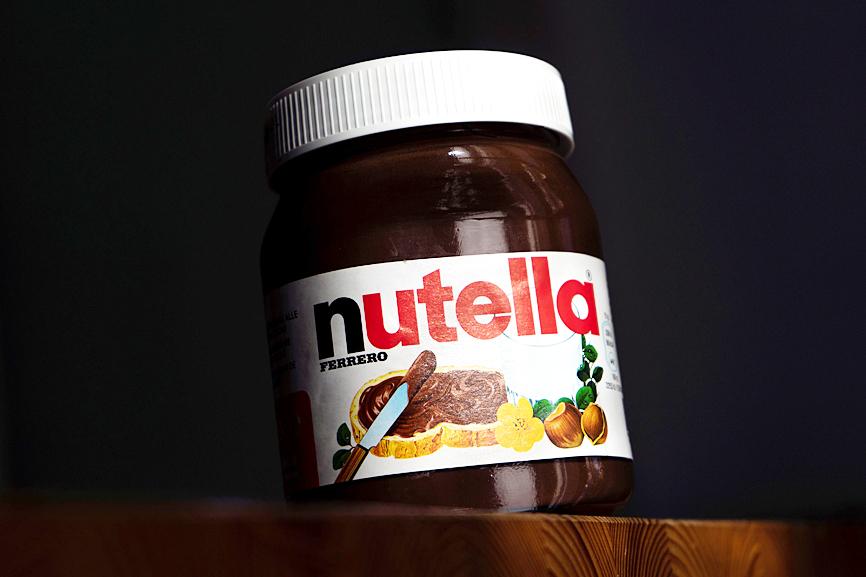Michele Ferrero helped introduce Nutella and Kinder chocolate to the world, turning his family’s Italian confectionery business into a global giant with annual sales of about US$10 billion. Now his son, Giovanni, is charting his own path.
Net assets of Giovanni’s investment firm, CTH, last year surged 40 percent to 2.8 billion euros (US$3.3 billion), filings show.
The increase was boosted by its US$300 million purchase of Danish cookie baker Kelsen Group, an acquisition designed to help preserve Italy’s biggest fortune by investing beyond the confectionery industry.

Photo: AFP
Giovanni has “established his presence in the wider sweet packaged-food market” with CTH, said Guido Giannotta, a director of the Brussels-based firm, who helps manage the Ferrero family’s fortune.
Such a move would “represent an important de-risking solution, both in terms of product categories and geographical reach,” he added.
Like the Ferreros, many of the world’s richest individuals are diversifying their fortunes as they seek to grow wealth across generations.
Zara founder Amancio Ortega — Spain’s richest person — invested the proceeds from his clothing business Inditex SA into real estate worldwide, while Microsoft Corp cofounder Bill Gates’ holdings range from railroads to agricultural businesses to construction firms.
The Ferreros’ business began as a family pastry shop in northern Italy that used hazelnuts as a way to stretch limited cocoa supplies. After World War II, it grew into a confectionary firm, opening production facilities and offices abroad. It launched the Nutella and Kinder Chocolate and Tic Tac mints brands in the 1960s and then expanded with products including Ferrero Rocher.
CTH was created in 2016 and owns Belgian cookie maker Delacre and US candy company Ferrara in addition to Kelsen Group.
Ferrero Group — the family’s confectionery business — has also invested beyond candy, completing a US$1.3 billion deal last year for Kellogg Co’s cookies and fruit snack brands.
Giovanni, 55, is executive chairman of Ferrero Group and owns a controlling stake in the Alba, Italy-based company, which is now valued at US$23 billion, according to the Bloomberg Billionaires Index.
It makes up the bulk of the Ferrero family’s US$32.9 billion fortune.
Investing in cookies “makes sense, as chocolate and biscuits fight for the same space in our stomachs,” said Duncan Fox, a consumer products analyst at Bloomberg Intelligence. “If you can get the right innovation, you get far greater distribution if you have exposure to both.”

Taiwan Semiconductor Manufacturing Co (TSMC, 台積電) secured a record 70.2 percent share of the global foundry business in the second quarter, up from 67.6 percent the previous quarter, and continued widening its lead over second-placed Samsung Electronics Co, TrendForce Corp (集邦科技) said on Monday. TSMC posted US$30.24 billion in sales in the April-to-June period, up 18.5 percent from the previous quarter, driven by major smartphone customers entering their ramp-up cycle and robust demand for artificial intelligence chips, laptops and PCs, which boosted wafer shipments and average selling prices, TrendForce said in a report. Samsung’s sales also grew in the second quarter, up

On Tuesday, US President Donald Trump weighed in on a pressing national issue: The rebranding of a restaurant chain. Last week, Cracker Barrel, a Tennessee company whose nationwide locations lean heavily on a cozy, old-timey aesthetic — “rocking chairs on the porch, a warm fire in the hearth, peg games on the table” — announced it was updating its logo. Uncle Herschel, the man who once appeared next to the letters with a barrel, was gone. It sparked ire on the right, with Donald Trump Jr leading a charge against the rebranding: “WTF is wrong with Cracker Barrel?!” Later, Trump Sr weighed

LIMITED IMPACT: Investor confidence was likely sustained by its relatively small exposure to the Chinese market, as only less advanced chips are made in Nanjing Taiwan Semiconductor Manufacturing Co (TSMC, 台積電) saw its stock price close steady yesterday in a sign that the loss of the validated end user (VEU) status for its Nanjing, China, fab should have a mild impact on the world’s biggest contract chipmaker financially and technologically. Media reports about the waiver loss sent TSMC down 1.29 percent during the early trading session yesterday, but the stock soon regained strength and ended at NT$1,160, unchanged from Tuesday. Investors’ confidence in TSMC was likely built on its relatively small exposure to the Chinese market, as Chinese customers contributed about 9 percent to TSMC’s revenue last

LOOPHOLES: The move is to end a break that was aiding foreign producers without any similar benefit for US manufacturers, the US Department of Commerce said US President Donald Trump’s administration would make it harder for Samsung Electronics Co and SK Hynix Inc to ship critical equipment to their chipmaking operations in China, dealing a potential blow to the companies’ production in the world’s largest semiconductor market. The US Department of Commerce in a notice published on Friday said that it was revoking waivers for Samsung and SK Hynix to use US technologies in their Chinese operations. The companies had been operating in China under regulations that allow them to import chipmaking equipment without applying for a new license each time. The move would revise what is known